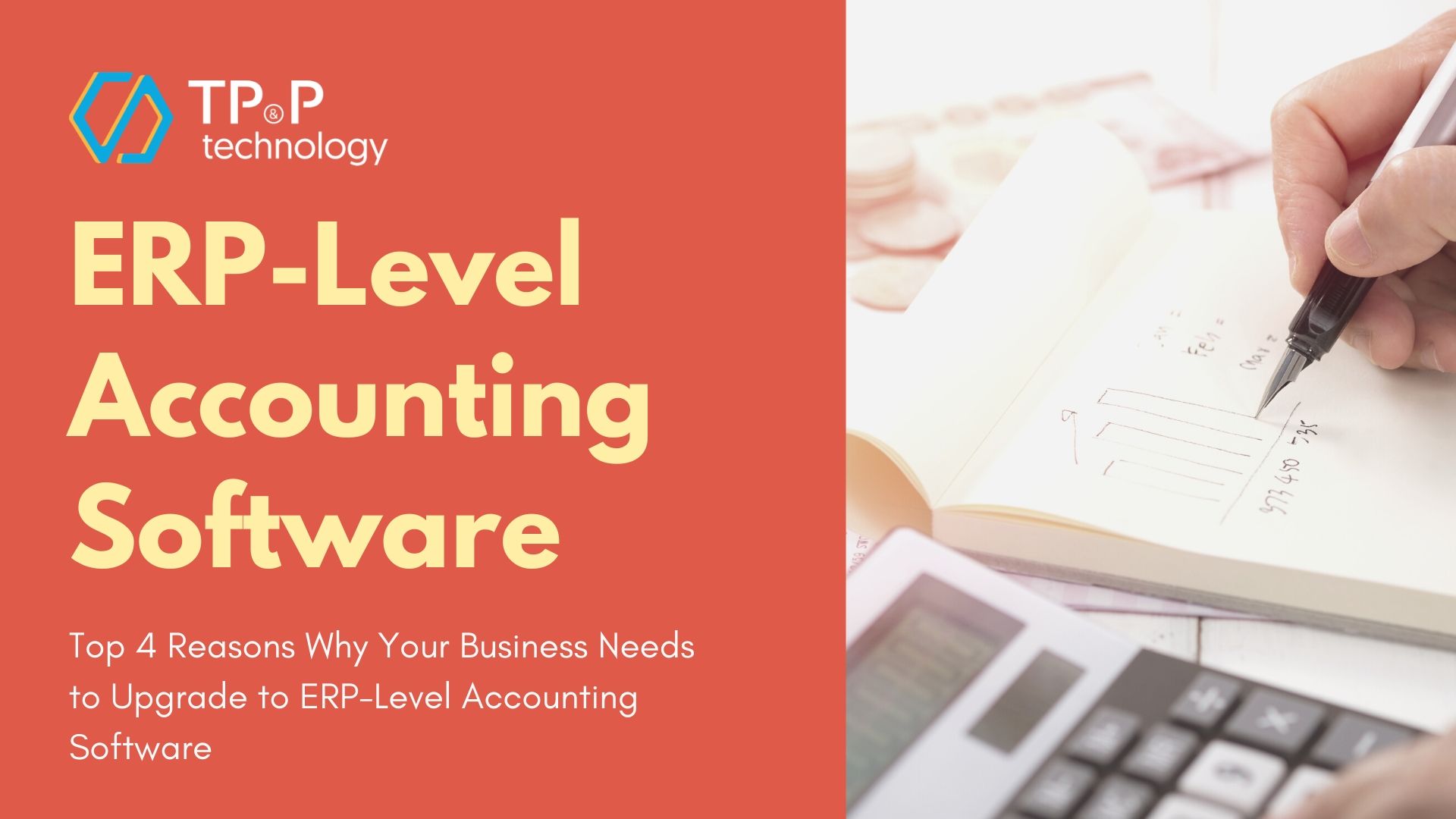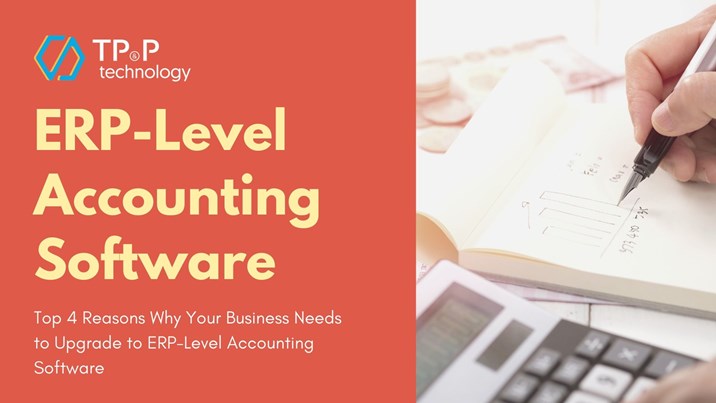
Top 4 Reasons Why Your Business Needs to Upgrade to ERP-Level Accounting Software
Accounting software system is a critical part of a back-office operation. In particular, a streamlined and efficient back-office applications systems require a best-fit accounting software that allows companies to meet the growing business demands.
Thus, the question at hand is whether the current account software is still the right fit? Or should it be upgraded to keep up with the continuously evolving requirements?
An ERP (Enterprise Resource Planning) system offers a comprehensive solution that connects all different key applications and aspects of your business into one single source of database. Such a robust solution enables companies to effectively scale up and meet customers’ increasing demands and expectations.
In this article, we take a look at the signs showing that it’s time to consider implementing an ERP-level accounting software solution:
#1: Too Many Software Systems for Different Processes
In the new digital age, business data is being generated at a volume bigger than ever. Data is the new valuable type of asset for business. Hence, organizations should first consider methods of how your employees record, track, and analyze data on a daily basis.
For example, ask whether the majority of the time your employees spent is for manually entering data because the system is not automated?
And, are your accountants using one specific accounting software application, while the sales team uses another one to manage sales orders? At the same time, warehouse workers manage shipping and receiving through a different and separate system.
Such an approach is highly inefficient, results in time draining and deter business growth.
Once it's clear that the process takes too long and presents too much disjointedness, then it is a sign that your organization needs to look for an upgraded solution.
Implementing an ERP system allows all the separate applications to be integrated into one central place, running smoothly, and ensuring one single source of data truth.
#2: Lack of Data Insights at Your Disposal
ERP solutions provide real-time or near real-time data and timely reports enable decision-makers to gain a better understanding of their businesses - ultimately making timely, and data-driven decisions.
If your existing software systems do not provide access to real-time information in order to take on new business opportunities, and in a timely manner - then it's time to consider adopting an ERP solution.
#3: Manual and Time Consuming Process
In many cases, your company's finance department and other related business units including accounting are usually the places that need to be looked into first, in order to determine if your organization needs an ERP system.
If your accountants currently spend most of their time manually entering invoices, sales orders, and other financial data - as well as handling a large volume of paperwork, then an ERP is the best suitable solution. By implementing an ERP system, numerous financial management and accounting processes will be optimized so that many activities can be automated and handled in real-time - eliminating human errors, including deduplicates and inaccuracies.
More importantly, with all financial data centralized in one place, the staff in the finance department are empowered with resources to collaborate and make better-informed decisions.
#4: Sales and Customer Service is Stagnating
Having the capacity to meet customers' expectations and complete purchase orders on time are critical aspects to stay competitive in the landscape of the new digital economy. If your business is currently struggling to overcome those challenges, then an ERP is the solution you need.
Your business application systems, if not integrated together, will lead to mismatching of data and inefficiencies. As a result, your company will suffer and fail to meet the growth rate as needed.
An ERP system provides real-time insights into your operations, freeing up your time to focus on other activities while also using reports and analytics from ERP.
Conclusion
Very often, the need to upgrade a company's accounting software system is driven by the need of keeping up with business growth. Thus, businesses should treat this as a sign that they are growing and getting bigger in number as well as capacity.
And this requires an accounting and financial management software system that can meet businesses' scalability requirements. An ERP solution can provide the answer to all the problems your businesses currently facing.



